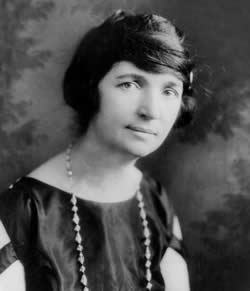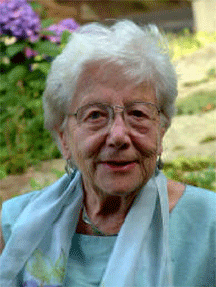1. Clara Barton (1821 – 1912)

Clarissa Harlowe 'Clara' Barton began her nursing career as a military nurse during the American Civil War. She cared deeply for her 'boys' and worked hard to coordinate the delivery of vital supplies during the conflict, as well as tending to the sick and injured. Her tireless efforts during the war (as well as after it, when she was responsible for organising vast efforts to search for missing soldiers) rightfully earned her the nickname the 'Angel of the Battlefield.'
However, what Clara is most remembered for is her founding of the American Red Cross. Having witnessed the International Red Cross's work during a trip to Geneva, Clara founded the American branch and acted as its president from 1881-1904. After she stepped down from her presidency of the Red Cross, Clara went on to found the National First Aid Society. While the organisation was short lived, it provided first aid training and developed first aid kits; services that were later incorporated into the American Red Cross itself.
Clara was a nurse with a truly humanitarian spirit and a widespread desire to help people. Today the American Red Cross provides disaster relief, support for military families, and healthcare services to those in need around the world.
tl;dr – Former military nurse whose humanitarian organisation emergency relief and healthcare to this day.
2. Linda Richards (1841-1930)

Linda Richards had a rough start in life. Born the youngest of three daughters, Linda lost both of her parents to tuberculosis by the time she was 13. However, her personal tragedy was silver lined, as caring for her dying mother sparked Linda's interest in nursing.
In 1873, Linda became America's first professionally trained nurse. Upon realising how little she knew about her profession, Linda began to dedicate her career to the advancement of medical knowledge and education of nurses worldwide. She opened and managed numerous nurse training facilities within the US, and during her missionary years in Japan helped establish the Japan's first nursing education program.
While working at Bellevue Hospital Center in New York, Linda also devised a system for keeping individual medical records for each patient. Her system was widely adopted in America and in the UK, and laid the foundations for modern medical recording.
Linda not only advanced education for nurses in leaps and bounds, but laid the groundwork for recorded medical histories; records that are now considered vital to the day to day practices of all healthcare professionals. A legacy indeed.
tl;dr – First professionally trained American nurse who pioneered nursing education and devised the first system of written medical records.
3. Margaret Sanger (1879-1966)

More commonly known today as a feminist reformer, Margaret Sanger was passionately devoted to making birth control accessible to women of all social standings and preventing the dangerous, emotionally traumatising situations caused by illegal abortions. She was one of the first Americans to introduce the term 'birth control' into the popular lexicon, and opened America's first – then illegal – birth control clinic in 1916. Margaret was also the founder of Planned Parenthood, and served as its president until she was 80 years old.
Steadfast in her views and unflinching in the face of the law, Margaret was arrested at least eight times for expressing her views on contraception. She coerced her first husband William Sanger into giving a pamphlet entitled 'Family Limitation' to a representative of Anthony Comstock, a conservative politician whose politics were shaped by Victorian ideals of morality and conduct. The pamphlet, which strongly contested birth control laws in America, resulted in Mr Sanger receiving a thirty day jail sentence. A year later, Margaret herself was also jailed for 30 days in a workhouse after opening her first birth control clinic.
While she was something of a controversial figure in her time, Margaret Sanger's impact on modern healthcare is indisputable.
tl;dr – Nurse and founder of Planned Parenthood who risked legal action to make birth control accessible for all women.
Virginia Avenel Henderson (1897-1996)

Garnering nicknames such as 'the first lady of nursing' and the 'modern-day mother of nursing' in her time, Virginia Avenel Henderson was integral to the development of modern nursing education, writing, and research. She is mostly known for her definition of nursing;
The unique function of the nurse is to assist the individual, sick or well, in the performance of those activities contributing to health or its recovery (or peaceful death) that he would perform unaided if he had the necessary strength, will or knowledge.
Virginia was also an early advocate of the inclusion of psychiatric nursing within nursing education, and fought for its place in the curriculum. While Virginia's life may have ended in 1996, her legacy within the nursing profession is stronger than ever, and will continue to thrive for decades to come.
tl;dr – Nursing scholar who defined what it means to be a modern nurse.
Florence Wald (1917-2008)

Having held the position of Dean of the prestigious Yale School of Nursing for seven years, you would be correct in thinking that Florence Wald had a profound impact on nursing education. However, Florence's biggest achievement is considered to be her involvement in bringing hospice care to America. Heavily influenced by end-of-life care models in Europe, she developed a hospice model that focused on providing palliative care to alleviate the physical, emotion, and psychological suffering of the dying, terminally ill, and their families. Towards the end of Florence's career she also worked to introduce hospice models within Connecticut Correctional Facilities.
Her focus on compassionate nursing fundamentally altered the way the healthcare profession approached palliative care. Through Florence's leadership, the dignity and comfort of dying patients began to take precedent over high levels of technological intervention.
tl;dr – Nurse who brought hospice care to America, vastly improving the quality of care provided for the terminally ill and the dying.

